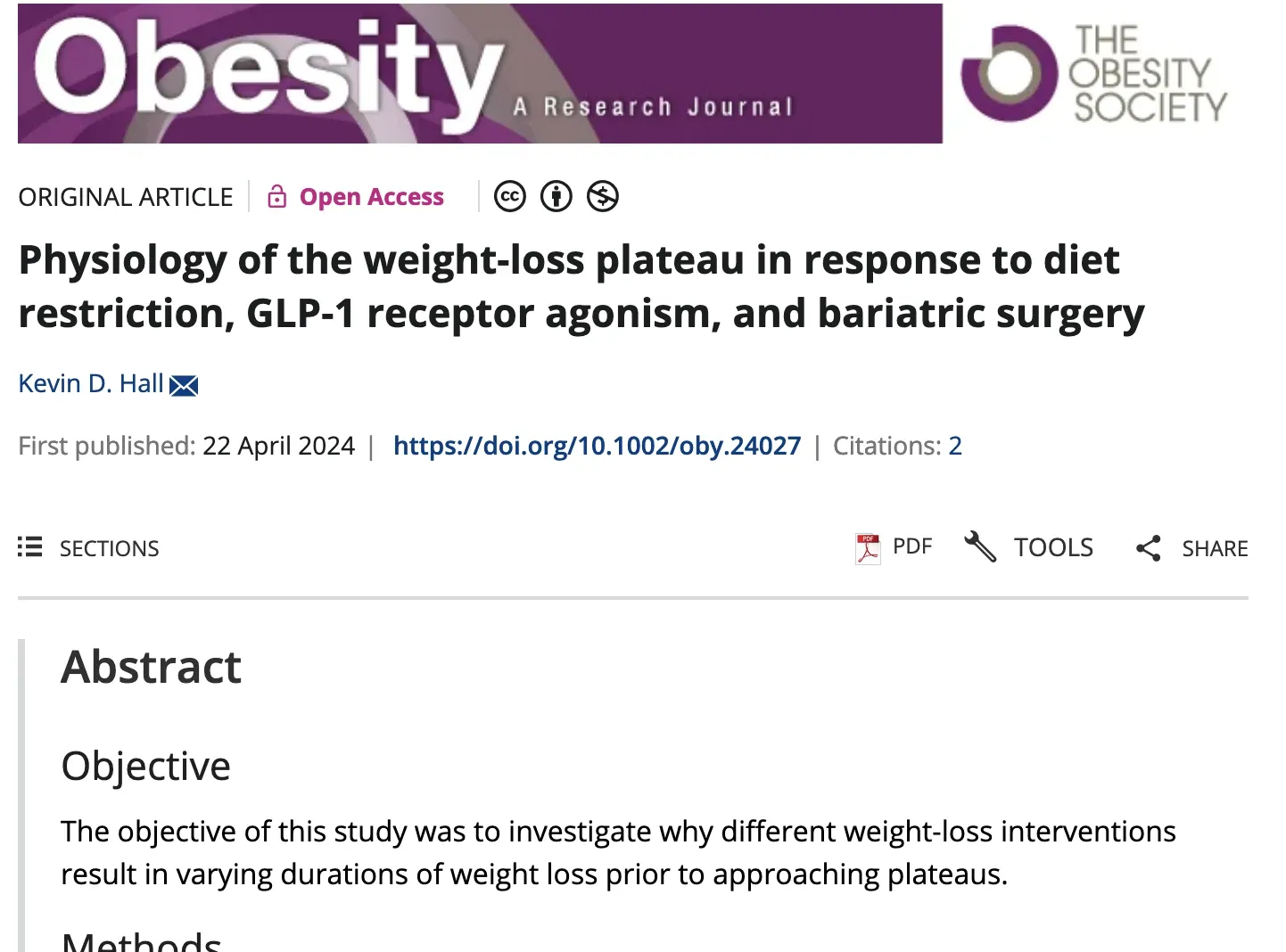Research models applied to GLP1s and Plateaus
New research that shows a benefit to appetite feedback control circuits via mathematical modeling, showing the benefits of using GLP1s.

GLP1 Receptor Agonists are great for losing weight, but what about for those who are already successfully losing weight?
Check out our quick explainer
Some research points to the efficacy of GLP1 Receptor Agonists like Ozempic, Mounjaro and others as a solution for breaking through weight loss plateaus:

What is a weight loss "plateau"
Weight loss "plateau"s refer to when weight loss by various methods fail to offer continue weight loss.
Plateaus can happen to people losing weight in just about any traditional manner (broadly referred to as "lifestyle changes"):
- Aerobic Exercise
- Weight lifting/Strength training
- Caloric restriction
- Dietary changes
Many people are incredibly disappointed when encountering plateaus after hard work at making lifestyle changes
How does GLP1 help with plateau-ing weight loss
Returning to the research at hand, researchers were able to build mathematical models that showed a marked improvement in the ability to break through (i.e. to continue the weight loss process) when using GLP1s when compared to not undertaking any treatment.
RYGB surgery resulted in a persistent intervention magnitude more than threefold greater than diet restriction and about double that of tirzepatide and semaglutide. All interventions except diet restriction substantially weakened the appetite feedback control circuit, resulting in an extended period of weight loss prior to the plateau.
While the most impressive results were reserved for bariatric surgery, it's important to note that the GLP1 Receptor Agonists that were modeled (Tirzepatide and Semaglutide) also offered strong projections, and did the important bit – weakening the appetite feedback control circuit.
While this study also considered bariatric surgery which is greatly more invasive than starting a GLP1 regimen, it's important to note that the projected results apply to all the options above.
For many people, where Bariatric surgery might have been the only choice in the past, GLP1 Receptor Agonists offer a much more compelling, easier method of consistent weight loss.
What's the value of mathematical modeling research?
Not every study or piece of research can be a full trial or involve human patients. While this study was more about building a mathematical model, it's important to note it's benefits and downsides.
In general, mathematical modeling is much easier to run, and if done correctly can produce results that can be great indicators of future areas of research, and chart an early course.
While mathematical modeling has great predictive ability, there can be a large difference between projected results and the real-world results of a clinical trial or even case studies.
All in all while we prefer clinical trials and case studies, mathematical models often serve as great checks on future exploration and guidance for what we can expect out of future research.




